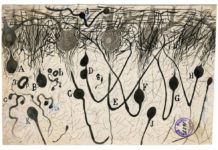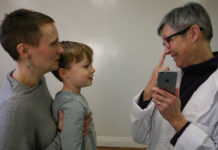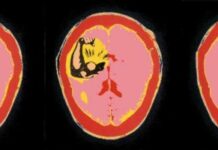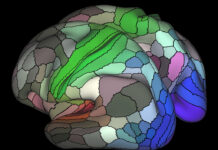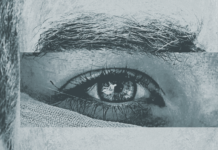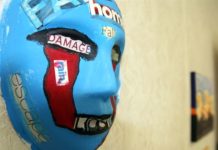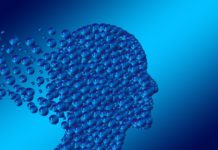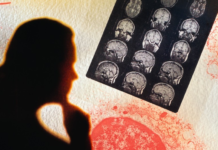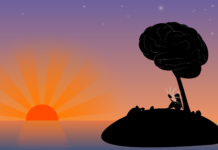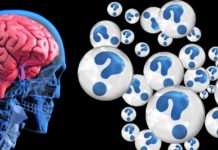A Glimpse Into the Brain, Drawn by the Father of Neuroscience
From The New York Times: A new exhibit at the Grey Gallery at New York University presents 80 hand-drawn renderings of the brain by Santiago...
Brief Trauma-Focused Psychotherapies Effective for Children with PTSD
Eye Movement Desensitization and Reprocessing Therapy and Cognitive Behavioral Writing Therapy both reduce PTSD symptoms in children who experienced a single traumatic event.
Power Causes Brain Damage
From The Atlantic: New research suggests that power may impair neural processes involved in feeling empathy and understanding others' perspectives. Recalling experiences of powerlessness can help...
Neuroskeptic and Horgan in Conversation
-Discover's Neuroskeptic and Scientific American's John Horgan discuss neuroscience and bad science on Bloggingheads.tv
How Right-Left Brain Hemispheres Were Discovered — And Then Misunderstood
In Proceedings of the National Academy of Sciences, Helen Shen recounts the history of how neuroscientists first discovered that the human brain had right and left hemispheres with seemingly unique functions, and how that scientific view has since been superseded even as the general public has held on and oversimplified it.
“Nature and Nurture: Human Brains Evolved to be More Responsive to Environmental Influences”
"We found that the anatomy of the chimpanzee brain is more strongly controlled by genes than that of human brains, suggesting that the human brain is extensively shaped by its environment no matter its genetics," said Aida Gómez-Robles, postdoctoral scientist at the GW Center for the Advanced Study of Human Paleobiology and lead author on the paper. "So while genetics determined human and chimpanzee brain size, it isn't as much of a factor for human cerebral organization as it is for chimpanzees."
New Study Raises Doubts About fMRI Neuroimaging Research
More than forty thousand papers have been published using functional magnetic resonance imaging (fMRI) technology to explore the brain. A new analysis of the common...
Research Shows Mindfulness can Decrease Anxiety
A new study explores the impact of a Mindfulness-Based intervention on stress-related biomarkers in individuals diagnosed with Generalized Anxiety Disorder (GAD).
Emotional Intelligence Needs a Rewrite
From Nautilus: The traditional notion of emotional intelligence is based on two assumptions: that it is possible to detect others' emotions accurately, and that emotions...
fMRI Imaging is Less Reliable Than Many Realize
-An interview with a physicist from the UC Berkeley Brain Imaging Center about the strengths and weaknesses of brain imaging science.
Trauma Resiliency Model: A New Somatic Therapy for Treating Trauma
Report presents new body-based therapeutic approach for shock and complex developmental trauma.
When Algorithms Are Running the Asylum
From Neo.life: The emerging discipline of computational psychiatry, which aims to use machine-learning algorithms to recognize patterns of mental distress and identify treatments that may be...
Why You Can Have a Tapeworm in Your Brain and Still Live Fairly Normally
Mind Hacks looks at a number of unusual cases, such as a woman missing a cerebellum and a man who had a tapeworm eat its way through his brain over four years, and asks what these kinds of cases are telling us about what we do -- and don't -- know about the human brain.
Can a Conceptual Competence Curriculum Bring Humility to Psychiatry?
Training for conceptual competence in psychiatry provides a new way forward to address theoretical and philosophical issues in mental health research and practice.
When Neurology Becomes Theology
In this piece for Nautilus, Robert A. Burton discusses how research into the essence of consciousness is more of a theological, religious exploration than a neurological...
Reading the Bible Through Neuroscience
In this interview for The Atlantic, James Kugel speculates on the minds and experiences of ancient prophets through a neuroscientific lens, exploring how biblical people's sense of...
Is Autism a “Deficit” or a Super Sensitivity?
Salon has reprinted an excerpt from a book by University of California cognitive neuroscientist Gregory Hickok, in which Hickok argues that common diagnostic tests...
Non-Medical Treatments for PTSD Effective, Study Suggests
Group-based MBSR and PCGT therapies effective as a complementary treatment for PTSD.
Political Neuroscience: “Growth Mindsets” and Disability
From Neuroskeptic: The British government is launching a new initiative, the "Health and Work Conversation," a one-hour conversation in which welfare claimants receiving financial support...
NPR’s “Invisibilia” to Explore Intangible Forces Behind Human Behavior
-A new regular radio program from NPR "explores the intangible forces that shape human behavior."
Social Scientists Question Growing Neuro Discourse
Anthropologists analyze discourse surrounding anthropological engagement with the neurosciences in an editorial recently published in Medical Anthropology.
Misconceptions About Brain Science Very Common, Study Finds
Researchers investigate commonly held misconceptions about brain research among Americans.
Fluoxetine in Adolescence Raises Sensitivity to Stress in Adults
Research on neurochemicals associated with moods in mice and rats finds that, while less depression-like behavior was observed in those receiving fluoxetine (Prozac) administration...
What Meditation can do for us, and What it Can’t
In recent years, American scholars and thinkers have increasingly argued for the secularization and modernization of Buddhism, proposing meditation as a fully secular form...
“‘I Wrote a New Story for My Nervous System’ — Neurosculpting, Neuroplasticity”
In the words of Monica Cassani; "This is so EXCITING. I listened to this with such complete and total delight. This interview with Lisa...

